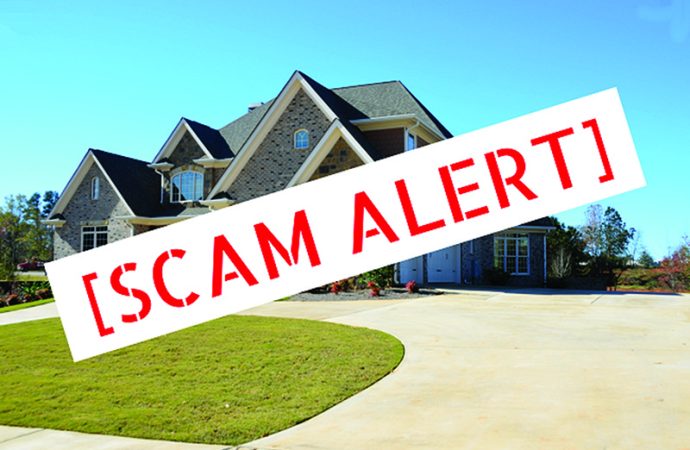Introduction Your home is your sanctuary, and real estate investments are your path to financial growth. Yet, hidden within the real estate landscape are scammers who are eager to exploit your dreams and ambitions. In this comprehensive guide, we will empower you with the strategies and knowledge needed to protect your home and investments from
Introduction
Your home is your sanctuary, and real estate investments are your path to financial growth. Yet, hidden within the real estate landscape are scammers who are eager to exploit your dreams and ambitions. In this comprehensive guide, we will empower you with the strategies and knowledge needed to protect your home and investments from real estate scammers. By understanding their tactics, recognizing red flags, and implementing prevention measures, you can create a fortress of security around your real estate oasis.
Unmasking Real Estate Scams
Before we dive into protection strategies, let’s expose the various guises real estate scams take. They come in several forms, each with its unique methods and victims. From renters seeking a home to investors looking for opportunities, no one is immune to these fraudulent practices.
Rental Property Scams
Rental property scams are a persistent threat, with fraudsters creating fake listings for properties that either don’t exist or aren’t available for rent. They entice victims with attractive prices and amenities. To protect yourself from rental property scams:
- Demand Ownership Verification: Always request proof of ownership from the landlord or property manager. Scammers often lack legitimate ownership documentation.
- Physical Inspection Is Essential: Never rent a property without physically inspecting it. Be wary of any excuses or obstacles preventing you from doing so.
- Exercise Caution with Payments: Avoid wiring money to unfamiliar parties. Recovering funds from such transactions can be an arduous process.
Mortgage Fraud
Mortgage fraud poses a significant risk to both homeowners and lenders. It encompasses various deceptive practices, including falsified documents, inflated property values, and even identity theft. To safeguard your interests:
- Choose Reputable Lenders: Research the credentials and track records of mortgage lenders. Trustworthy institutions prioritize transparency and professionalism.
- Scrupulously Scrutinize Documents: Thoroughly review all loan documents and seek legal counsel when in doubt.
- Promptly Report Suspicious Activity: If you suspect mortgage fraud, report it to the relevant authorities. Swift action can prevent further damage.
Image by: https://moneystreetmortgage.com/
Visual Table: Common Real Estate Scams
| Scam Type | Description |
|---|---|
| Rental Property | Fraudulent rental property listings |
| Mortgage Fraud | Deceptive mortgage practices |
| Investment Schemes | Scams targeting real estate investors |
| Identity Theft | Misuse of personal information for fraud |
This visual table categorizes common real estate scams for easy reference.
Investment Property Schemes
Real estate investments offer the promise of substantial returns, making them an attractive target for fraudsters. Scammers often embellish investment properties and promise enticing returns or inflate property values to lure unsuspecting investors. To protect yourself from investment property scams:
- Conduct In-Depth Research: Investigate investment opportunities meticulously, including the properties and individuals involved.
- Seek Legal Counsel: Consult with a real estate attorney before committing funds. Legal experts can help you navigate complex investment agreements.
- Guard Against High-Pressure Tactics: Be cautious of individuals pressuring you to make quick investment decisions. Legitimate opportunities will stand the test of scrutiny.
Identity Theft in Real Estate
Real estate transactions can provide fertile ground for identity theft, a sophisticated art that involves the misappropriation of personal information for fraudulent purposes. To protect your identity during property dealings:
- Safeguard Personal Information: Be vigilant about protecting your personal and financial information.
- Regularly Monitor Your Credit: Periodically review your credit reports for any signs of suspicious activity.
- Verify Communication: Always confirm the legitimacy of anyone requesting your personal information during a real estate transaction.
Recognizing Red Flags
Spotting the warning signs of a potential real estate scam is critical. Familiarize yourself with these red flags:
- Offers That Seem Too Good to Be True: Scammers often dangle extraordinarily attractive deals to lure victims.
- High-Pressure Tactics: Be wary of individuals attempting to rush you into decisions.
- Lack of Documentation: Verify the authenticity of ownership and legal documents. The absence of proper documentation can be a red flag.
The Power of Due Diligence
Due diligence is your best defense against real estate scams. Here are the steps to take when verifying property transactions:
- Verify Property Ownership: Confirm the seller’s legal ownership of the property.
- Physical Inspection Is Essential: Thoroughly inspect the property for any issues or discrepancies.
- Neighborhood Research: Investigate the neighborhood for factors that may impact property value.
Prevention Measures
Preventing real estate scams requires proactive measures. Equip yourself with practical tips to protect your home and investments:
- Due Diligence: Research meticulously, verify information, and consult professionals before making any commitments.
- Identity Verification: Confirm the identities of all parties involved. Be wary of any reluctance to disclose information.
- Legal Consultation: Seek guidance from experts in real estate, law, and finance, particularly when dealing with complex transactions.
- Background Checks: Investigate the backgrounds and reputations of individuals and organizations involved in the transaction.
Reporting Suspected Scams
Swift action is essential if you encounter or suspect a real estate scam. Learn how to report suspected scams and protect others from falling prey to similar schemes. Reporting not only safeguards your interests but also ensures that fraudsters face the consequences of their actions.
Staying Informed and Vigilant
In an ever-evolving landscape, staying informed and vigilant is key. Understand the importance of continuous learning and heightened awareness. By staying ahead of the fraudsters, you can protect your real estate oasis and financial future.
Conclusion:
As we conclude our journey through the realm of real estate scams, remember that knowledge is your greatest ally. By understanding their tactics, recognizing red flags, and staying informed, you can safeguard your home and investments. Property ownership should be a source of pride and financial security, not a target for fraudsters. Stay informed, stay vigilant, and ensure your real estate journey remains a fortress of safety. Your home and investments deserve nothing less.
Comparative Table: Prevention Measures vs. Scam Types
| Prevention Measures | Scam Types |
|---|---|
| Due Diligence | Rental Property Scams |
| Identity Verification | Mortgage Fraud |
| Legal Consultation | Investment Property Schemes |
| Background Checks | Identity Theft in Real Estate |
This comparative table illustrates how preventive measures align with different types of real estate scams.


















Leave a Comment
Your email address will not be published. Required fields are marked with *